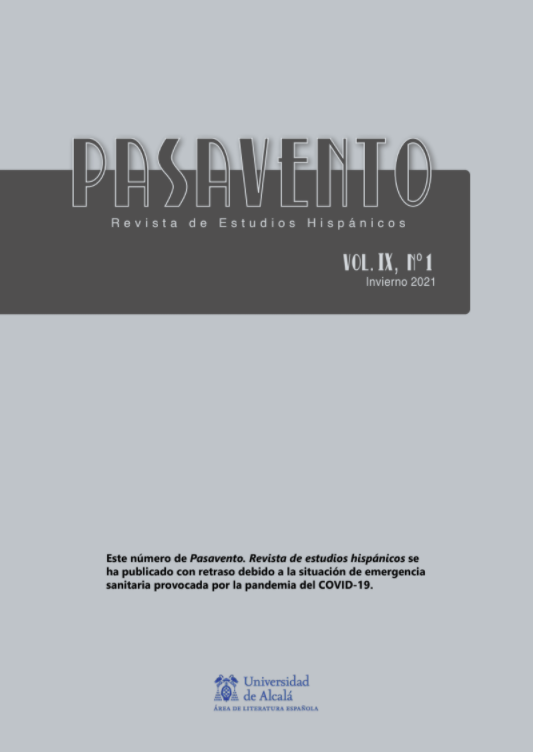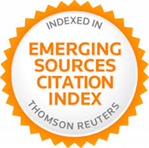"The Promise", of Silvina Ocampo, as Impossible Writing or the Imposibble as Writing
DOI:
https://doi.org/10.37536/preh.2021.9.1.1088Keywords:
Writing, Reading, Illiteracy, Impossible, PromiseAbstract
This article addresses the posthumous novel La promesa, by Silvina Ocampo – a work that appeared in 2013 as part of a set of six books published so far after the death of the author, which began to be edited and published in 2006– based on the hypothesis according to which the ideas of writing and reading are proposed in the text as forms of the impossible and the illegible. This takes place both in the editorial operation carried out by Ernesto Montequin –curator and editor of the archive of the argentine writer in its entirety and of the posthumous manuscripts in particular–, in the same scriptural nature of the novel –shaped similar to a movie montage–, as well as in the procedures carried out Ocampo consisting of locating scriptures within other scriptures that predominate in the work studied. All of this leads us to propose a reading of the posthumous novel La promesa not as a narrative of memories, nor as an autobiographical novel but as an invitation, sometimes imperative, to consider other forms of writing and other reading practices where the notion of novel and promise take a relevant place. To accompany and think about this hypothesis, we address concepts by Roland Barthes, Jacques Derrida, John Austin, Ernesto Montequine and contributions from specialized critics in Ocampo’s work and specifically in her posthumous work.
References
Austin, John (1971). Cómo hacer cosas con palabras. Barcelona: Paidós.
Barthes, Roland (2009). Lo obvio y lo obtuso. Imágenes, gestos y voces. Barcelona: Paidós.
Biancotto, Natalia (2015a). “Del fantástico al nonsense: Sobre la narrativa de Silvina Ocampo”, Orbis Tertius, XX.21: 39-50. <http://www.orbistertius.unlp.edu.ar/>.
Biancotto, Natalia (2015a) “Un homenaje fallido a Carroll: La torre sin fin, de Silvina Ocampo”, CONFLUENZE, 7.2: 182-193.
Derrida, Jacques (1984). “Políticas del nombre propio”, en La Filosofía como Institución. Barcelona. Ediciones Juan Granica.
Gamerro, Carlos (2010). Ficciones barrocas. Una lectura de Borges, Bioy Casares, Silvina Ocampo, Cortázar, Onetti y Felisberto Hernández. Buenos Aires: Eterna Cadencia.
Izquierdo, M. Jesús (1994). “Uso y abuso del concepto de género”, in Pensar las diferencias, ed. M. Vilanova. Barcelona: Universidad de Barcelona.
Larrosa, Marina (2015). “La Epifanía de Dioniso: Una Interpretación del Fragmento 357 PMG de Anacreonte a partir de la Consideración de sus Ediciones Modernas”, MATLIT, 3.1: 143-157. DOI: <http://doi.org/10.14195/2182-8830_3-1_8>.
Molloy, Sylvia (2009). “Para estar en el mundo: los cuentos de Silvina Ocampo”, en Silvina Ocampo en La ronda y el antifaz. Lecturas críticas sobre Silvina Ocampo, comp. Nora Domínguez y Adriana Mancini. Buenos Aires: Editorial de la Facultad de Filosofía y Letras, UBA.
Montequin, Ernesto (2011). “Nota al texto”, in Las repeticiones y otros relatos inéditos. Buenos Aires: Lumen.
Montequin, Ernesto (2013). “Nota preliminar”, in La promesa. Buenos Aires: Lumen.
Montequin, Ernesto (2014). “Nota al texto”, in El dibujo del tiempo. Recuerdos, prólogos, entrevistas. Buenos Aires: Lumen.
Navarro Reyes, Jesús (2007). “Promesas deconstruidas. Austin, Derrida, Searle”, Thémata. Revista de Filosofía, 39.
Neo Poblet, Natalia, y Guido Idiart (2014). La máquina des-cribir. El sujeto entre-líneas. Buenos Aires: Letra Viva.
Ocampo, Silvina (2013). La promesa. Buenos Aires: Lumen.
Ocampo, Silvina (2020). Cuentos completos. Buenos Aires: Emecé.
Podlubne, Judith (2011). Escritores de Sur. Los inicios literarios de José Bianco y Silvina Ocampo. Rosario: Beatriz Viterbo.
Urrituia Cárdenas, Hernán, y José Luis Ramírez Luengo (2004-2005). “El morfema de género en el español de América”, Boletín de filología, XI.40.
Downloads
Published
How to Cite
Issue
Section
License
Copyright (c) 2021 Pasavento. Revista de Estudios Hispánicos

This work is licensed under a Creative Commons Attribution 4.0 International License.








